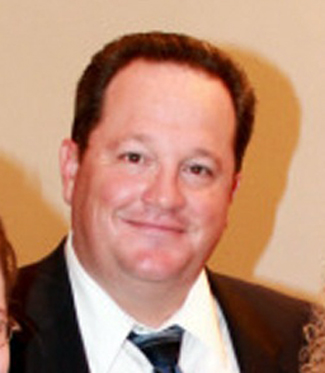By David Roach

A Kentucky policy barring volunteers and employees in the juvenile justice system from calling homosexuality a sin has drawn criticism and provoked the threat of a lawsuit.
David Wells, a 13-year volunteer prison minister from McQuady, Ky., was informed in July by the Kentucky Department of Juvenile Justice that he would no longer be permitted to serve at the Warren County Regional Juvenile Detention Center in Bowling Green because he refused to sign a document, per state policy, promising not to “imply or tell LGBTQI juveniles that they are abnormal, deviant, sinful, or that they can or should change their sexual orientation or gender identity.”
Wells told Fox News he and every other volunteer from Pleasant View Baptist Church received a similar notice, as did volunteers at a nearby Baptist church.
KBC Executive Director Paul Chitwood told Baptist Press that while nondiscrimination policies “have become commonplace in government and corporate settings,” to “begin to require people of faith to sign off on statements that compromise our religious convictions is sad for those desiring to volunteer their time in programs designed to help fellow citizens who, for whatever reason, have found themselves caught in the justice system.
“Sadder still,” Chitwood said in written comments, “is the reality that those who are in this terribly broken system will no longer have a chaplain to listen to them, counsel them and pray with them.”
The “great irony,” he noted, is that “the very belief system that has motivated us to volunteer our time for the betterment of our state and society is the belief system our state and society most fears.”
In a July 23 letter to the Department of Juvenile Justice, the Christian legal organization Liberty Counsel threatened legal action if the state did not reinstate Wells and other affected volunteers, repeal its policy regarding homosexuality and promise not to impose a “religious litmus test” related to homosexuality on ministers providing counseling to juveniles. The state’s actions against Wells violated both the U.S. and Kentucky constitutions, Liberty Counsel attorney Richard Mast wrote.
The Lexington Herald-Leader reported a week later that the Department of Juvenile Justice was “standing by” its policy, which was adopted in April 2014. Chitwood observed that signing a statement of compliance is an “apparently new requirement.”
Juvenile Justice Department Commissioner Bob Hayter wrote a letter to Mast defending the state’s “open and inclusive” stance.
“The department’s regulation is neutral as to religion and requires respectful language toward youth by all staff, contractors and volunteers,” Hayter wrote, according to the Herald-Leader. “The regulation advances a compelling government interest in developing a trusting, therapeutic relationship with the children in DJJ custody, which requires an environment of unconditional acceptance.”
Liberty Counsel founder and chairman Mat Staver called Hayter’s response inadequate.
“The policy has such broad language that it literally prevents [Wells] from answering questions from children seeking guidance,” Staver told the Herald-Leader. Suppose “one of the kids tells David he sexually molested his sister and wants to change. Another kid tells David that he was sexually molested by a man when he was younger and he wants to change. What is he supposed to do, not offer them a message of hope?”
Richard Nelson, executive director of the Commonwealth Policy Center in western Kentucky, wrote in a commentary for the KBC’s Kentucky Today website that the Juvenile Justice Department’s policy is an “irony of ironies.”
“Jail is a place where people go when ethics are rejected and moral boundaries breached,” Nelson wrote. “And now the state is handcuffing counselors from steering youths — many of whom are in state custody for committing sexual crimes — onto a path of wholeness and spiritual healing.”
Lonnie Wilkey, editor of the Tennessee Baptist Convention’s Baptist and Reflector newsjournal, wrote in a blog post that Kentucky’s mistreatment of Wells represents a trend of religious liberty infringement.
“If you think this won’t happen again and again, you are sadly mistaken,” Wilkey wrote. “And, it will eventually find its way to Tennessee — probably much sooner than later. Two freedoms that Americans hold dear — speech and religion — are under attack. We have to be diligent and pray more fervently than ever. And we all need to be able to answer this question: Will we stand boldly for Christ?” — Baptist Press



